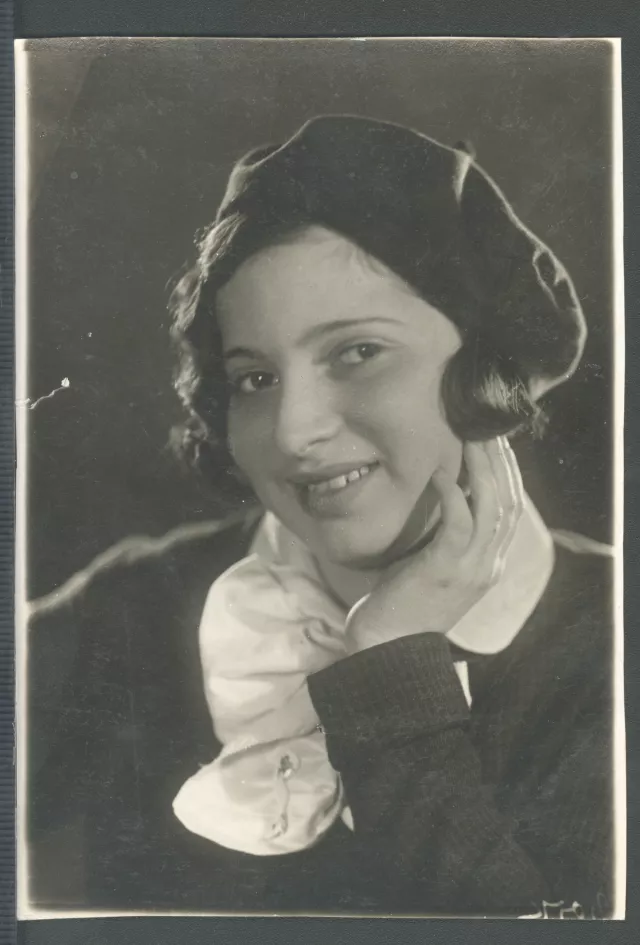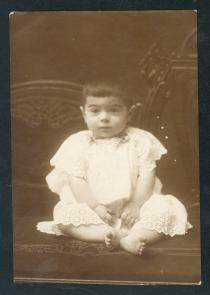Fanya Maryanchik
1934 - I am 17. The picture was taken in a studio in Kiev.
In 1932 I finished seven grades of the Jewish school and entered a Librarian College. I studied there for two years.
I found out from my friends that the Library of the Academy of Sciences was looking for employees to work at the Exchange Fund Department for the Dnepropetrovsk University.
I was accepted to the Library. At the same time the Kharkovsky Institute of Culture (with an affiliate in Kiev) announced enrollment to the Librarian faculty.
Women with a certificate of a gymnasium and even high school education applied for this faculty in order to obtain a librarian education degree certificate.
Girls, who already graduated from a librarian college, also took the exams.
They invited me to try and enter the Institute with them.
I went to the District Department of Education with a request to be released from the College because I was still a College student by that time.
They told me: ‘If you pass the exam we will accept you as if you have secondary education, without a College certificate’.
I passed the exam and thus was accepted to the part-time study faculty at the Librarian Institute, Kharkov affiliate.
I studied and worked at the same time. It was in 1934. I was transferred from the Exchange Fund at the Library to the Acquisition Department.
I received all literature and distributed it to various departments in the Library. There were around 300 employees at our Library.
When everybody understood that I was a hard-working employee I was accepted to the Library to work on a permanent basis.
I worked at the Academy of Sciences Library and often visited the Jewish Culture Institute for the Academy of Sciences of Ukraine.
My school teachers worked there: Yiddish teacher Skudinsky and Maidansky, the teacher of Ukrainian.
My friends were Ulya Wolfmann, Nastya Adamenko, Barya Pavlova and Vera Turyan.
We studied together at the Institute and everybody called us ‘academicians’.
We studied in the morning and I had to work in the evening. The working day was six hours. It remained like that until 1940:
there existed a Law about the six-hour working day. I was busy with acquisition; later on I was ‘shifted’ to work with the alphabetical catalogue
and sorted out catalogue cards the whole day. Later on I worked at the book distribution department, which was more convenient for me:
I stayed at the Institute until 1 pm and had enough time to have lunch at home,
as my Department worked between 4.30 pm and 11 pm. I came back home late at night.
I was 17 years old at that time and I actually helped to support the family.
Our work at the library was counted as practice, thus we graduated from the Institute within three years, in 1937.
I became member of the Young Communist League at the Academy of Sciences.
In 1969 the Academy YCL organization celebrated an anniversary and I received an invitation.
However, my son was sick and I was not able to go. I sent a long telegram,
which was read out during the celebration.















